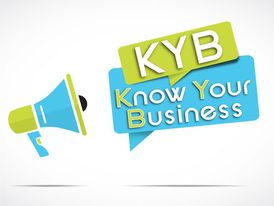Businesses of today often do not know who they are partnering with. The criminals are getting advanced and creating fake companies with ease. All they do is use the name of a pre-existing company, create fake identities, and camouflage documents. These kinds of business owners are either money launderers or fraudsters trying to reap illegitimate benefits. Furthermore, a lack of authentic KYB checks can worsen the scenario.
Regulatory authorities mandate verifying businesses for every company either big or small before they initiate the partnership. The strict Know Your Business laws have all companies under its jurisdiction, however, they may vary from state to state. These regulations are there for a reason, primarily to counter financial crimes, identity theft, and data breaches. Therefore, businesses need to employ digital business verification solutions to verify companies and stay compliant with the regulations.
Know Your Business Checks – Regulatory Obligations by Authorities
Frauds in business onboarding dramatically increase as criminals use fake names and documents to make their firm look legit. These are often companies with money launderers as their owners, who make their money look legit by using it in partnerships. According to the ICIJ’s FinCEN files, firms experienced over $2 trillion in suspicious payments. So much so, failure to comply with Know Your Business checks lead to hefty penalties and reputational damages.
Therefore, industries need to abide by the regulations put forth by authorities strictly. According to Shufti Pro News, these majorly include KYC and AML laws. According to these, businesses should verify partnering firms before registration. More of the authority-wise regulations include:
Know Your Business Regulations from the European Union
The European Union mandates its member states to carry out company verification before they build a partnership. As per the AMLD 6, businesses should verify the Ultimate Beneficial Owners (UBOs), background, previous operations, and identities of management. Furthermore, the businesses should keep a regular check on the affiliates and look for any suspicious activity that may lead to non-compliance.
A risk-based approach is another standard falling under these jurisdictions. It involves the risk assessment of partnering firms. In this process, businesses conduct checks on the partnering firms and access the risk they do or may possess. With all these follows continuous monitoring. The authority in the EU mandates that businesses should keep track of their subsidiaries’ activities and changes within the firms. This way they can detect fraudulent consequences in time while reporting them directly to the regulatory authorities.
Know Your Business Regulations from the United States
The verifying companies‘ regulations in the United States are part of the CDD Final Rule. As FinCEN and other authorities mandate, businesses are required to perform due diligence, background verification, and identity validations. This is because of establishing a B2-B relationship. Therefore, businesses can mitigate reputational damages and hefty fines while staying compliant with the regulations.
How do Business Verification Services help Companies to Comply with the Regulations?
To adhere to the Know Your Business regulations, companies need to implement strict policies. These should be in collaboration with global law. Moreover, the following controls are equally important in ensuring KYB compliance.
Background Checks and Screening Against Sanction Lists
Companies need to check the backgrounds of firms by using business verification services. This will help them cross-match the owners’ and companies’ identities against various lists. For instance, Politically Exposed Persons (PEPs), OFAC, EU, and UN sanction lists. This way, businesses can ensure that they are not partnering with any corrupt or criminal company.
AI-powered Know Your Business checks help parent companies to access global databases, registers, and sanction lists. Therefore, businesses can accurately verify the companies, owners, and their internal management.
Continuous Monitoring of Activities and Internal Changes
The verification of companies during registration is not enough, businesses should also keep track of their activities. Some companies may use the name and credentials of any pre-existing long-gone company. During verification, the infractions will seem to be accurate.
However, in the later stages, the owners might be using the firm to reap illegitimate benefits. Therefore, businesses must keep track of internal changes in management or policies, and their activities periodically. As Shufti Pro Funding indicates, AI-encrypted solutions are reliable options.
Performing Due Diligence Prior to Partnerships
Due diligence is another requirement set by the regulatory authorities. It refers to the risk assessment of firms before moving forwards to build a long-term relationship. Moreover, due diligence detects the chances of money laundering and other criminals threats in time
In Summation
The businesses of today are moving towards digitization and attracting global firms to expand their services. However, they can not leave KYB checks unattended. According to regulatory authorities, the companies should adhere to Know Your Business standards and verify affiliates before building long-term partnerships.
